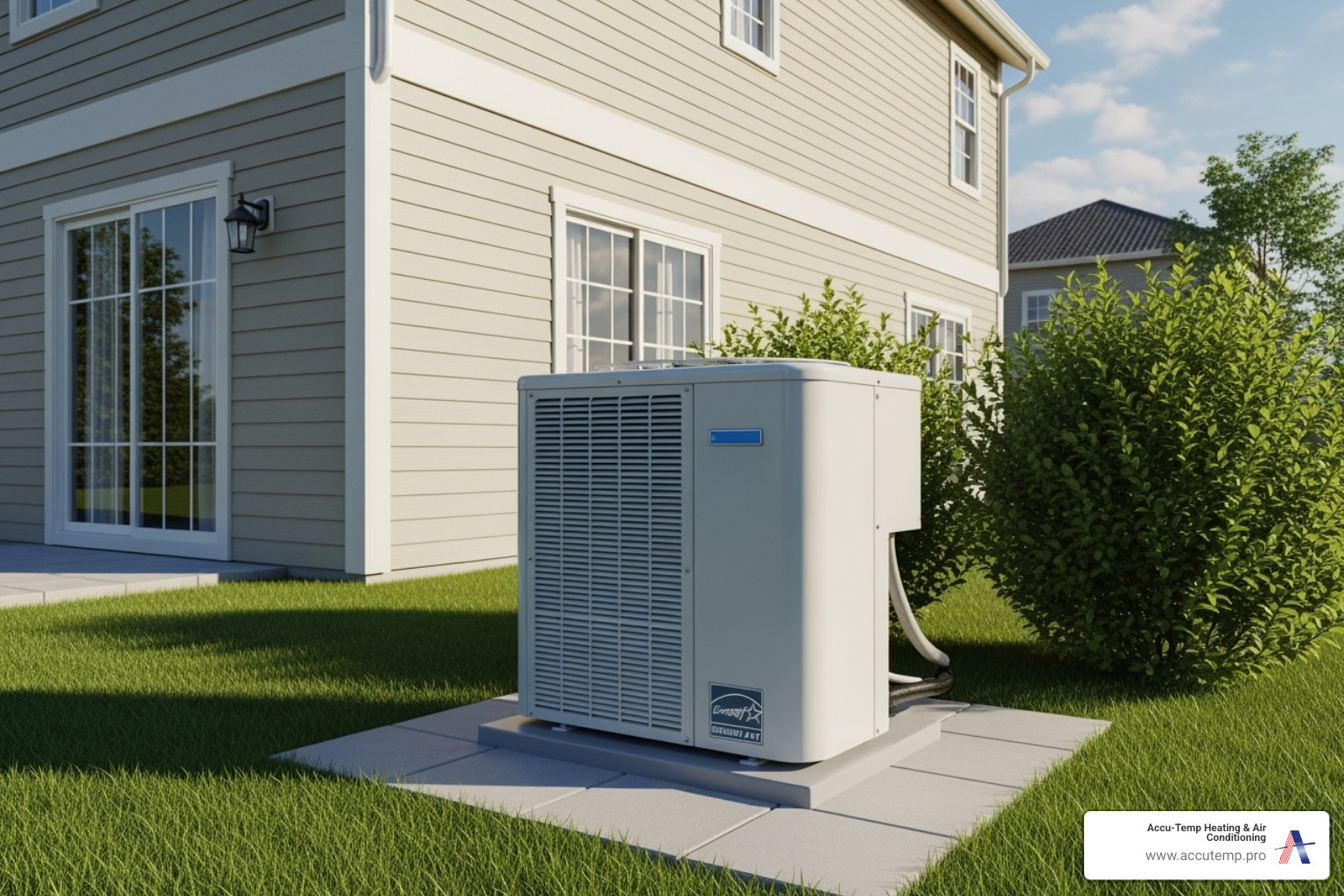During the summer in Daytona Beach, humidity levels climb quickly, and air conditioners often work overtime. For many households, this also becomes the season when the AC drain line clogs up again and again. A clogged drain line might sound like a small inconvenience, but if left ignored, it can lead to leaks, water damage around the unit, and even cause the system to shut down. If you’re noticing water pooling near your AC or it’s not cooling like it should, your drain line could be the problem.
Understanding why this happens and how to prevent it can save you time and stress. Many homeowners in coastal areas deal with this clogging issue year after year without knowing the root cause. Daytona Beach’s warm, damp climate is a big factor, but other conditions can play a role too. Knowing what to look for and when to take action can help you maintain reliable comfort through every humid stretch of summer.
Why Humid Weather Affects Your AC Drain Line
Humidity has more of an impact on your air conditioning system than you might think. When the AC runs, it doesn’t just cool the air, it removes moisture too. That moisture collects on the evaporator coil and drains out through a pipe called the condensate line or drain line. In places like Daytona Beach, where humidity can stick around for weeks at a time, this process happens constantly.
That constant moisture is what makes the drain line a trouble spot. If this water doesn’t flow smoothly through the line, it quickly becomes a breeding ground for buildup. Even a small amount of trapped water can lead to mold or algae forming inside the pipe. Over time, this buildup thickens and clogs the line completely.
AC systems in humid coastal cities like Daytona Beach face this problem more frequently because the unit pulls more moisture from the air. The extra workload increases the chances of excess water sitting in the line too long. On top of that, warm temperatures further encourage bacteria and algae to grow. A clogged drain line might seem like a slow process, but during peak summer months, it can develop faster than expected.
Common Causes of AC Drain Line Clogs
While humidity plays a big role in clog formation, there are multiple factors that contribute to why your AC drain line keeps clogging. These issues can build up gradually and often go unnoticed until a leak or system issue appears. Some of the most common causes include:
1. Debris and dirt buildup: Dust, dirt, and other particles from your indoor air can collect in the system and end up in the drain line. Once inside, they stick to moisture and start forming blockage.
2. Mold and algae growth: This is one of the biggest problems in humid conditions. The dark, damp interior of a drain line is the perfect place for algae and mold to thrive, especially in consistently hot areas like Daytona Beach.
3. Improper installation or poor slope: If the drain line doesn’t have the right slope, water won’t flow out properly. Even a slight tilt in the wrong direction can cause water to pool.
4. Skipping regular maintenance: Without regular care and inspections, small blockages get worse over time. Units that don’t receive scheduled service are more likely to develop backups in the line.
5. Increased usage due to humid weather: More frequent use during muggy months increases the amount of condensation. That means more water running through the lines and more chances for clogs if the system isn’t in top shape.
Let’s say it’s a humid weekend in Daytona Beach and the AC has been running nonstop. You notice a musty odor near the unit, and there’s water gathering underneath it. This could be a clogged drain line from trapped algae and debris that’s built up faster than usual due to heavy use. In cases like this, it’s crucial to act quickly before more damage develops inside the home or the unit shuts off completely.
Preventative Measures and Solutions
Once a drain line is clogged, it can create bigger problems than just a puddle of water. The best approach in a humid place like Daytona Beach is prevention. You can lower the chances of your AC shutting down or leaking by keeping a regular eye on how the unit performs and scheduling frequent inspections.
Here are four simple steps that help minimize clogs:
1. Schedule seasonal maintenance with our professionals. An inspection and tune-up before peak summer months allows any early signs of a drain line issue to be fixed before humidity ramps up.
2. Use approved treatment tablets. These help break down algae and mold in the drain line. Our technicians can install and maintain these safely during service visits.
3. Make sure your drain line is properly installed. It needs the right slope for water to flow out of your system naturally. If it’s flat or tilted the wrong way, that water will sit and grow bacteria.
4. Keep the indoor unit and the area around it clean. Dust and pet hair can get sucked into the system and make their way into the drain line. Vacuuming vents and changing the air filter regularly helps reduce this problem.
While it’s common for homeowners to pour bleach down the drain line occasionally, problems can still build up in sections that are hard to reach or see. If water pools near your system more than once a year or if you smell a musty scent coming from your vents, that’s usually a sign your airflow or drain line needs professional attention.
When to Call for Professional Help
Some signs of a clog are obvious, like standing water or system shutdowns. But others build up over time. The moment your AC begins short cycling, blowing warm air, or making gurgling sounds during operation, it’s time to get help.
Here are some red flags that should never be ignored:
1. Water collecting around your indoor unit or near the air handler
2. A mildew or mold smell from your vents
3. Visible algae in the drain line or drip pan
4. The system turning off earlier than it should (short cycling)
5. Dripping or water damage near the ceiling or wall vents
Waiting too long can lead to more than just a clogged line. If the backup continues, it might trip the AC safety switch and shut the system off altogether. This kind of breakdown often happens at the worst possible time, like a muggy August evening in Daytona Beach, just when you need cooling the most. Having our technicians check your unit regularly eliminates that risk and keeps your system in working condition all season long.
Keeping Your AC Running Smoothly in Humid Weather
For homes in Daytona Beach, the right maintenance plan can prevent a long list of unwanted repairs. You want your AC system to keep humidity in check, not contribute to moisture problems around the unit or inside vents. A drain line blockage is one of the few problems that develops quietly but causes noticeable damage when it’s ignored.
Routine service visits clear out buildup before it becomes a clog, and checking the slope of the line prevents pressure from building behind trapped water. Combined with filter changes and cleaning around the system, this regular upkeep gives your AC a better chance to work efficiently during heatwaves without flooding or cutting off.
The earlier you catch warning signs like minor puddles or unusual smells, the easier it is to solve. These simple steps make a difference for homeowners facing humid summers close to the coast.
Ensure Comfort and Reliability with Our Expert Services
Blocked drain lines can cause more than system inconvenience. They introduce moisture to places you don’t want it, like drywall or floors. Acting early prevents water damage, keeps air quality stronger, and ensures your AC system works when you need it most. Whether it’s clearing an existing clog or setting up a seasonal maintenance plan to avoid one in the future, you can rely on our licensed HVAC professionals to take care of the problem for good. Schedule HVAC services in Daytona Beach with Accu-Temp Heating & Air Conditioning and keep your home dry, cool, and protected all season long.
If clogged drain lines are causing repeated issues during humid summer days in Daytona Beach, Accu-Temp Heating & Air Conditioning recommends scheduling routine inspections and maintenance to avoid water damage and costly repairs. Learn more about HVAC services in Daytona Beach to keep your home consistently cool and running efficiently. For a quick estimate or to book a service visit, please contact us today.



